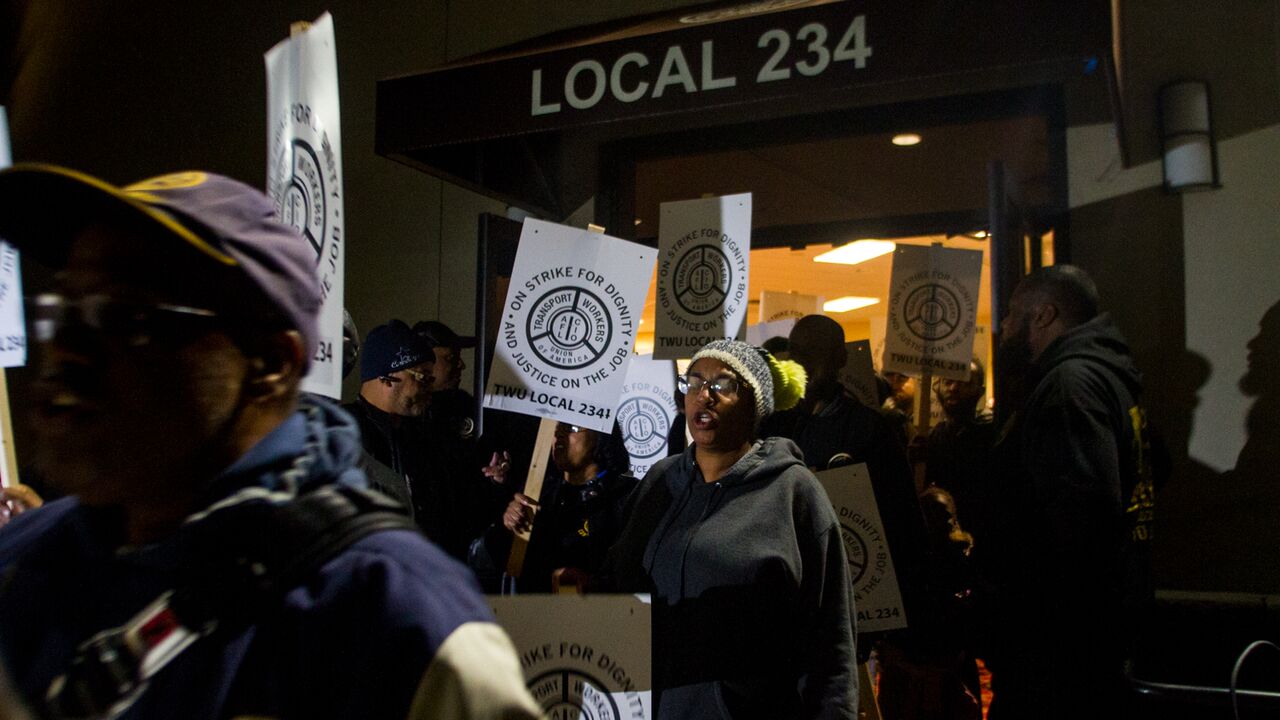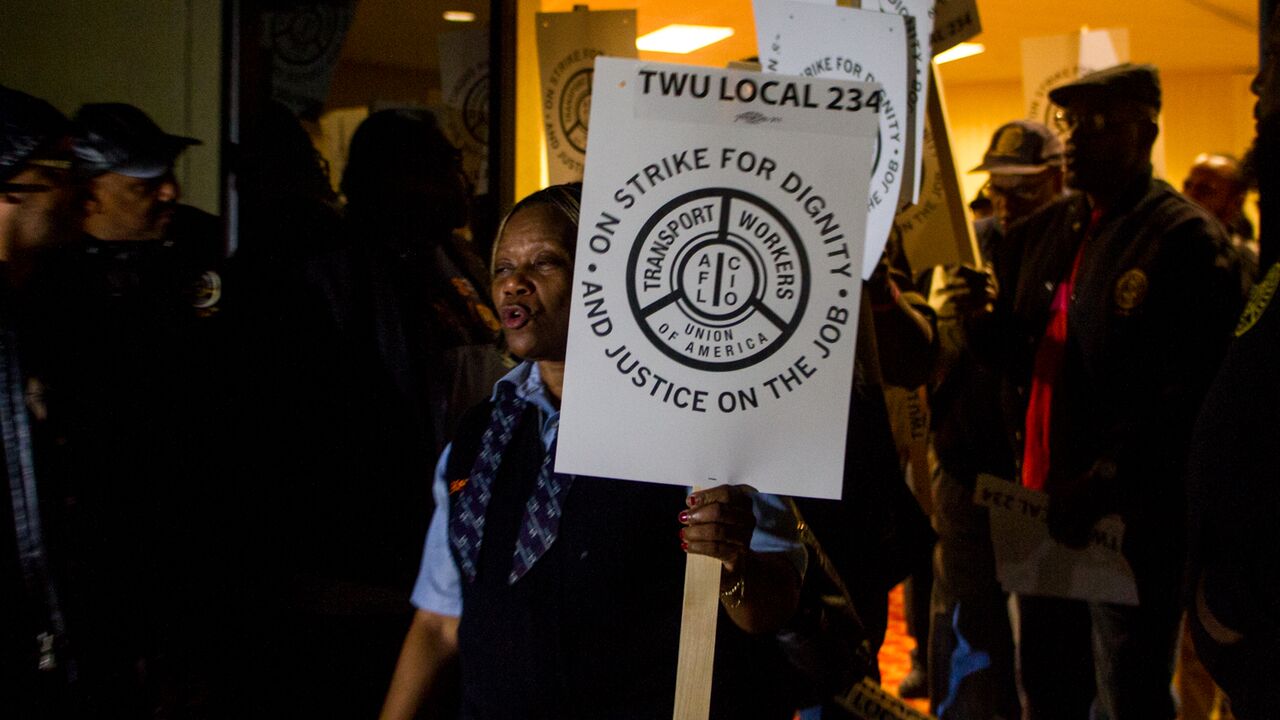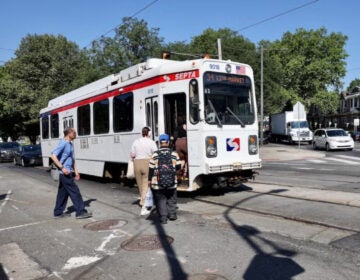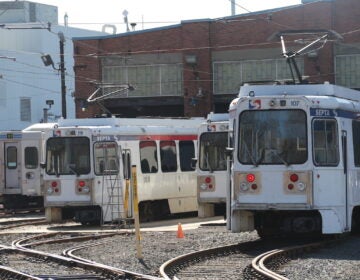Deviated SEPTA: As Nov. 1 transit strike deadline nears, still no deal

Negotiations between SEPTA and its largest union continued over the weekend but accord on a new labor contract remained elusive as Monday’s midnight deadline to avert a strike inched hours closer.
If SEPTA cannot settle on a new agreement with Transport Workers Union Local 234’s 4,700 city transit employees, the union will strike on Tuesday, November 1.
TWU accused SEPTA of walking away from the negotiating table on Saturday, saying management “refused to address non-economic issues affecting operator and public safety.” The parties resumed talks on quality of life topics Sunday morning but tabled the issues without any progress to discuss pensions and health care in the afternoon, said TWU spokesperson Jamie Horwitz.
Even though the sides remain at loggerheads, a SEPTA spokesperson described the fact both sides were still talking as a good thing. In a statement provided Sunday night, spokesperson Andrew Busch said: “SEPTA is committed to engaging in good-faith negotiations at the bargaining table, and we are hopeful that we can reach an agreement with the union without a service disruption for riders.”
On Friday, around 200 TWU members rallied at their union hall on North Second Street. After distributing signs to be used on the picket lines Tuesday, members chanted “TWO THIRTY-FOUR” and “NO CONTRACT, NO WORK” as they spilled out into the night. The workers declined to speak with press.
It’s tough to predict whether a last minute deal will be reached or not. Union officials usually strike an aggressive stance in the lead up to a deadline, said James Wolfinger, a professor at DePaul University and author of ‘Running the Rails: Capital and Labor in the Philadelphia Transit Industry’, a history of TWU Local 234.
“We’re getting very close to the strike deadline and usually… that really compels both sides to get in the room and negotiate,” said Wolfinger. Wolfinger said that sides have reasons for wanting to avoid a walk out. “On the one hand, workers very rarely come out ahead in a strike: [As] public service workers, they’re always battling public perception about who they are and whether they are a special interest.
“Management, on the other side, they need the revenue from the system to be able to keep up operations,” said Wolfinger. “They also don’t want to have a bad reputation in the city of not providing the services that are necessary.”
During the 2009 strike, TWU President Willie Brown called himself the “most hated man in Philadelphia right now,” and said he had “no problem with that.” The union walked out in the middle of a recession and ultimately won wage increases and larger pensions. This year, the economy has been steadily improving, but SEPTA ridership is down, thanks in part because of a widespread defect that sidelined a third of its Regional Rail fleet over the summer. City transit ridership has steadily declined since a high of 282 million in fiscal Year 2012. It was just under 276 million last year. A strike would further depress ridership.
In 2014, when a strike was narrowly avoided by the last minute compromise that ignored big disagreements on pensions and health care coverage, Brown repeated such bellicose statements, repeatedly telling media his union was ready to strike. “I don’t think it’s a matter of if we strike,” Brown told the Philadelphia Inquirer days before a settlement. “It’s simply a matter of when, unfortunately.”
AT ISSUE: PENSIONS, HEALTH CARE COST, WAGES, REST
The union wants the new contract to improve pensions, increase wages, and address a number of non-economic issues. SEPTA officials think the contract is already fair, and want union workers to contribute more to cover health care costs.
Union workers pay 1 percent of their pre-overtime wages for medical coverage—about $46 a month on average, said SEPTA. Since 2008, the authority’s medical insurance expenses have increased 41 percent. In fiscal year 2017, health care will eat up around 27 percent of SEPTA’s $1.4 billion operating budget.
TWU wants the union pension plan to match management’s. The plans are nearly identical, except that management benefits go up as their salaries rise, whereas union workers benefit calculations are capped at $50,000. The union wants to set the cap equal to its highest pay grade, which is currently $70,000 a year. The union’s pension fund is only 62 percent funded. SEPTA’s management fund is more fully funded—it was 70 percent back in 2009, before changes to it last year that SEPTA estimates will save $183 million over 30 years. Union officials say consolidating the different funds would cover the cost of increased retirement benefits.
Union officials have also complained that new vehicle operators don’t get enough respite between shifts. SEPTA says that their work rules ensure that all employees get enough down time. TWU counters that the work rules allow some operators to work a mix of daytime and nighttime shifts, which interrupts regular sleep patterns, and that the mandatory minimum 8 hours between shifts doesn’t give enough time for rest.

RIDERS GET READY
For months now, TWU has warned its membership to prepare for a strike. SEPTA passengers have had less time to prepare, with news of a potential strike only emerging two weeks ago.
A strike will shut down all city buses, both subway/elevated lines and Trolley Routes 10, 11, 13, 15, 34, and 36. Those services provide around 884,000 trips on an average weekday.
SEPTA’s Regional Rail, the Norristown High Speed Line, Suburban Bus routes, the LUCY, Route 310 (Horsham Breeze), Route 204, Route 205, Cornwells Heights Parking Shuttle, Trolley Routes 101 and 102, and CCT Connect services will remain in service, as the crews operating those work under different contracts.
However, if the strike lasts, the service shutdown might spread: contracts with suburban maintenance employees represented by Local 234 and 365 vehicle operators in Delaware County represented by the Sheet Metal, Air Rail & Transportation Workers Local 1594 expire on November 18th. Another group of bus operators in Montgomery and Bucks Counties have a contract ending November 23rd. All of those employees would likely adopt whatever agreement TWU signs for its City Transit workers.
In the event of a strike Regional Rail and NHSL riders should also prepare for widespread delays starting Tuesday, especially during the evening rush hours, as crowds of regular subway and bus passengers will switch services. Car commuters should expect choked roads across the city.
District officials confirmed that Philadelphia schools will remain open during the strike.
ELECTION SEASON IS SEPTA STRIKE SEASON
The upcoming election provides the union added leverage.
City Commissioner Al Schmidt says a walkout won’t affect the polls. “Should a strike occur, we’ll still be in a position to make sure our employees make it to work.” The City Commissioners oversee elections in Philadelphia, which have been the target of spurious allegations of voter fraud from Republican Presidential candidate Donald Trump.
With the election still a week away and the strike still a day away, union officials suggested that SEPTA’s Board of Directors would invite the added chaos a transit strike would provide Election Day. SEPTA Chairman Pasquale Deon, a Republican, strenuously rejected the insinuation. “We have no desire to have a labor strike [during] the election,” said Deon.
At least nine of SEPTA’s fifteen directors are Democrats or were appointed by Democrats.
It isn’t clear how a strike would impact voters: turnout was actually up slightly in 2009, the last time Brown’s union picketed on Election Day. That year a total of 120,000 Philadelphians voted. This year, Democrats hope to get four times that number to vote for Hillary Clinton; another 80,000 or so are expected to back Trump.
TWU threatened another Election Day strike in 2014, when Democratic challenger Tom Wolf would unseat incumbent Governor Tom Corbett. At the time, the Philadelphia Inquirer reported unnamed sources close to Brown describing that threat as “just for leverage,” and that Brown would not have imperiled Wolf’s chances with a strike.
While the election might give TWU more leverage, SEPTA’s finances lend management’s position a boost. In its last fiscal year, SEPTA revenues increased 1.9 percent, but expenses increased 2.4 percent—driven largely by a $28 million increase in city transit’s labor and fringe benefits expenses. Labor wages and benefits account for about 72 percent of SEPTA’s operating budget.
WHYY is your source for fact-based, in-depth journalism and information. As a nonprofit organization, we rely on financial support from readers like you. Please give today.






